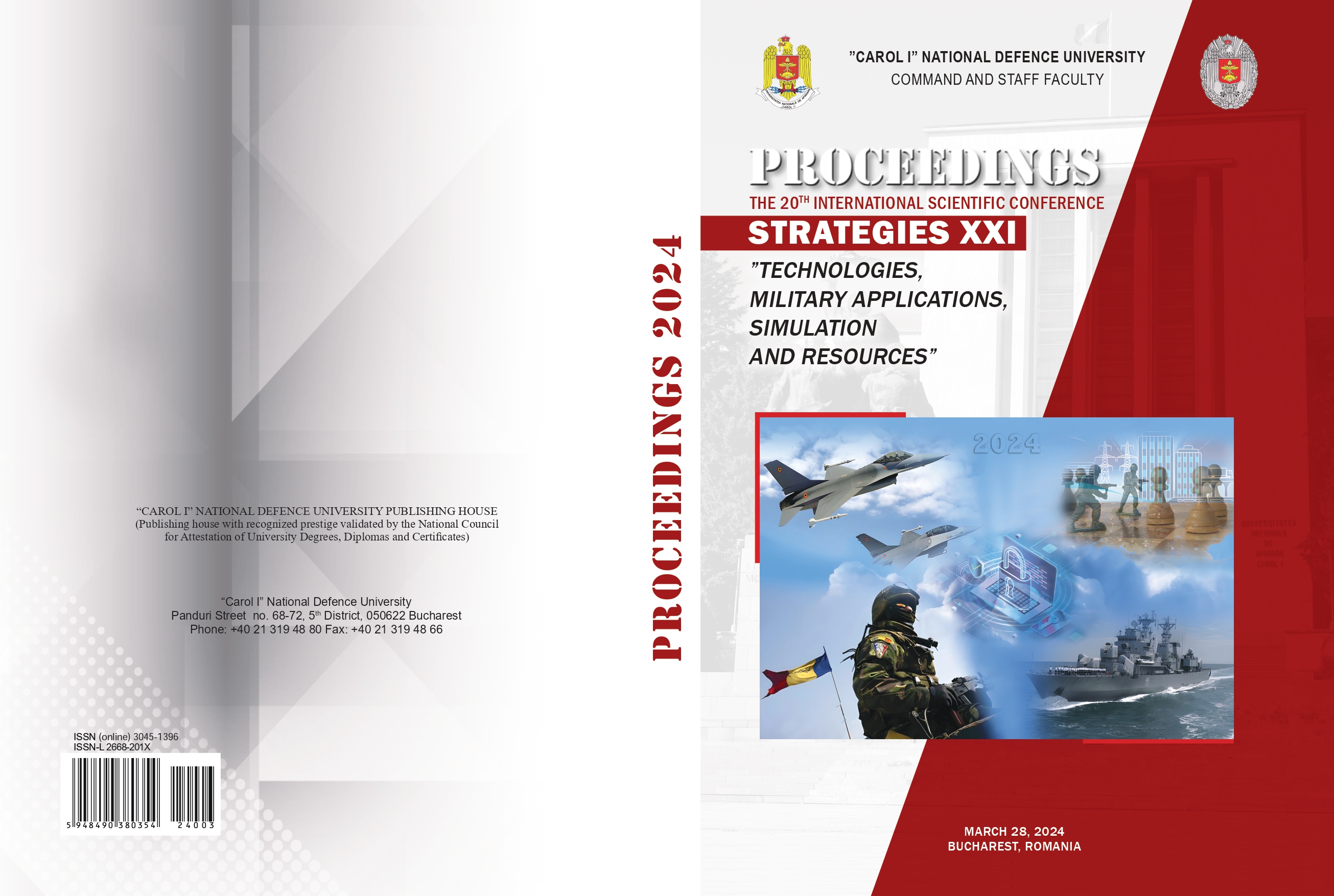GENERATION AND DEPLOYMENT OF FORCES PARTICIPATING IN UN PEACEKEEPING OPERATIONS FROM A LOGISTICAL PERSPECTIVE
GENERATION AND DEPLOYMENT OF FORCES PARTICIPATING IN UN PEACEKEEPING OPERATIONS FROM A LOGISTICAL PERSPECTIVE
Author(s): Gabriela Florina NICOARĂ
Subject(s): Social Sciences
Published by: Carol I National Defence University Publishing House
Keywords: operational logistics; force generation; deployment; UN operations; peacekeeping operations.
Summary/Abstract: As part of the North Atlantic Alliance, in the context of Romania's strategic partnership with the United States of America, as well as an active participant in Non-Article 5 operations and EU peace operations, the Romanian Army has reaffirmed its position as a credible partner in relation to the structures with which it has deployed missions. At the national level, the Joint Forces Headquarters has the leading role in operations conducted outside the national territory and is the translator of the strategic level concept to the tactical level execution elements. Through its plans, it promotes, above all, the synchronization of operations and the multiplication of efforts through the concept of 'joint' operations. In this context, the Romanian Army has extensive experience in force assessment, transfer of authority from the generator, deployment to theatres of operations, command and control during missions, and facilitating logistic support in a multinational context or through national responsibility alone. Over time, Romania has experienced episodes relevant to its preparedness through participation in peacekeeping operations under the aegis of the UN, actions carried out as a materialization of Romanian political concern for peacekeeping and international stability. The geostrategic and geopolitical context specific to the last twenty years has led to a shift of attention from this issue to response measures to counter the effects of threats to security and stability. As a result of focusing the main effort on strengthening the defense of the national territory and putting other aspects related to the promotion of national defense and security policies on the back burner, there is a need to update the whole spectrum of information, both procedural and operational aspects related to the specificities of UN-led operations. One argument in this respect is the transposition of the national political will, in the form of a decision of the Supreme Council of National Defence, to provide forces for participation in UN peacekeeping operations. In this context, the present research aims to highlight the mechanisms of force generation in the UN context and the particularities underlying the logistical provision of forces participating in peacekeeping missions.
- Page Range: 315-322
- Page Count: 8
- Publication Year: 2024
- Language: English
- Content File-PDF

